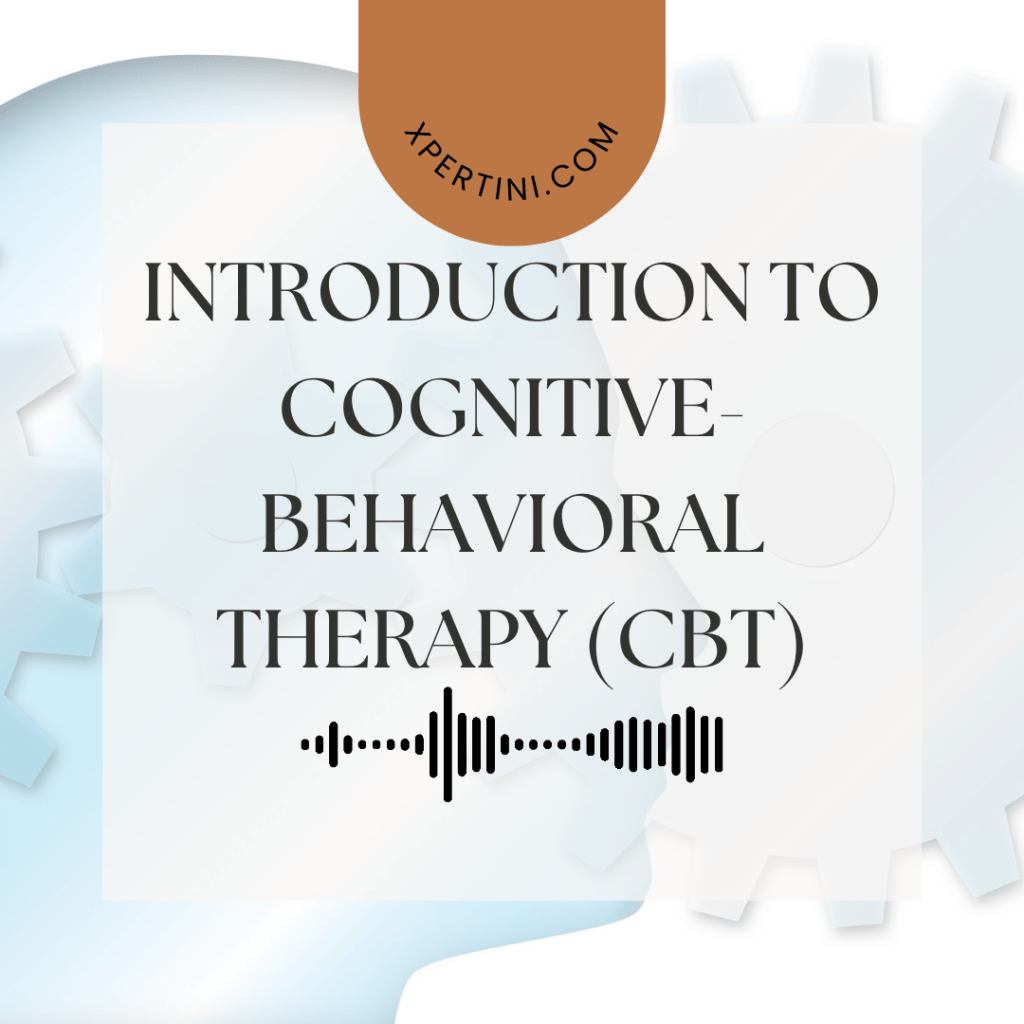Introduction to Cognitive-Behavioral Therapy (CBT)
Course Summary
Start a comprehensive exploration of Cognitive-Behavioral Therapy (CBT) in this course designed for those navigating the landscape of mental health. Delving into the core principles and theoretical underpinnings, participants are introduced to the foundational elements that shape CBT’s contemporary prominence. The course unfolds with an insightful historical perspective, tracing the evolution of CBT through influential figures and key milestones, setting the stage for a deep dive into its theoretical foundations.
Each lesson serves as a building block, unraveling the complexities of CBT through engaging discussions on basic techniques, ethical considerations, and the application of principles in real-life scenarios. From cultural competence to case study analysis, participants gain practical insights into adapting CBT interventions to diverse contexts and refining their analytical skills through real-world cases.
The course crescendos with a comprehensive exploration of diverse career opportunities within the CBT domain. Offering guidance on professional development, this lesson illuminates the possibilities, from traditional roles to emerging opportunities in a field that continues to evolve.
The course provides a structured and engaging learning experience. Through a mix of theoretical understanding, practical application, and interactive elements, participants emerge with a robust foundation in CBT, ready to navigate its terrain and contribute meaningfully to the evolving landscape of mental health practices.
Course Overview
This course is designed to provide a comprehensive introduction to Cognitive-Behavioral Therapy (CBT), a widely-used therapeutic approach in the field of mental health. Participants will gain a foundational understanding of the principles, techniques, and applications of CBT, making it suitable for individuals aspiring to pursue a career in mental health and those seeking to enhance their knowledge in this domain.
Course Objectives
- Understand the foundational principles of Cognitive-Behavioral Therapy (CBT).
- Explore the historical development and evolution of CBT.
- Gain practical insights into applying CBT techniques in therapeutic settings.
- Recognize the efficacy of CBT in treating various mental health disorders.
- Develop skills in identifying and challenging negative thought patterns.
- Understand the role of behavioral interventions in CBT.
- Explore the integration of mindfulness techniques in CBT.
- Evaluate the cultural competence and ethical considerations in CBT practice.
- Demonstrate proficiency in creating and implementing CBT treatment plans.
- Identify potential career opportunities in the field of Cognitive-Behavioral Therapy.
Course Outcomes
- Demonstrate awareness of fundamental CBT principles.
- Apply CBT techniques to case studies.
- Develop and implement a mock CBT treatment plan.
- Analyze the integration of mindfulness in CBT.
- Evaluate the role of behavioral interventions in CBT.
- Identify negative thought patterns in hypothetical scenarios.
- Practice cultural competence in CBT.
- Evaluate ethical considerations in CBT practice.
- Integrate CBT approaches for various mental health disorders.
- Explore career opportunities in the field of CBT.
Course Audience
- Students aspiring to pursue a career in mental health.
- Mental health professionals seeking to enhance their skills.
- Psychologists, counselors, and therapists.
- Individuals interested in understanding CBT for personal growth.

